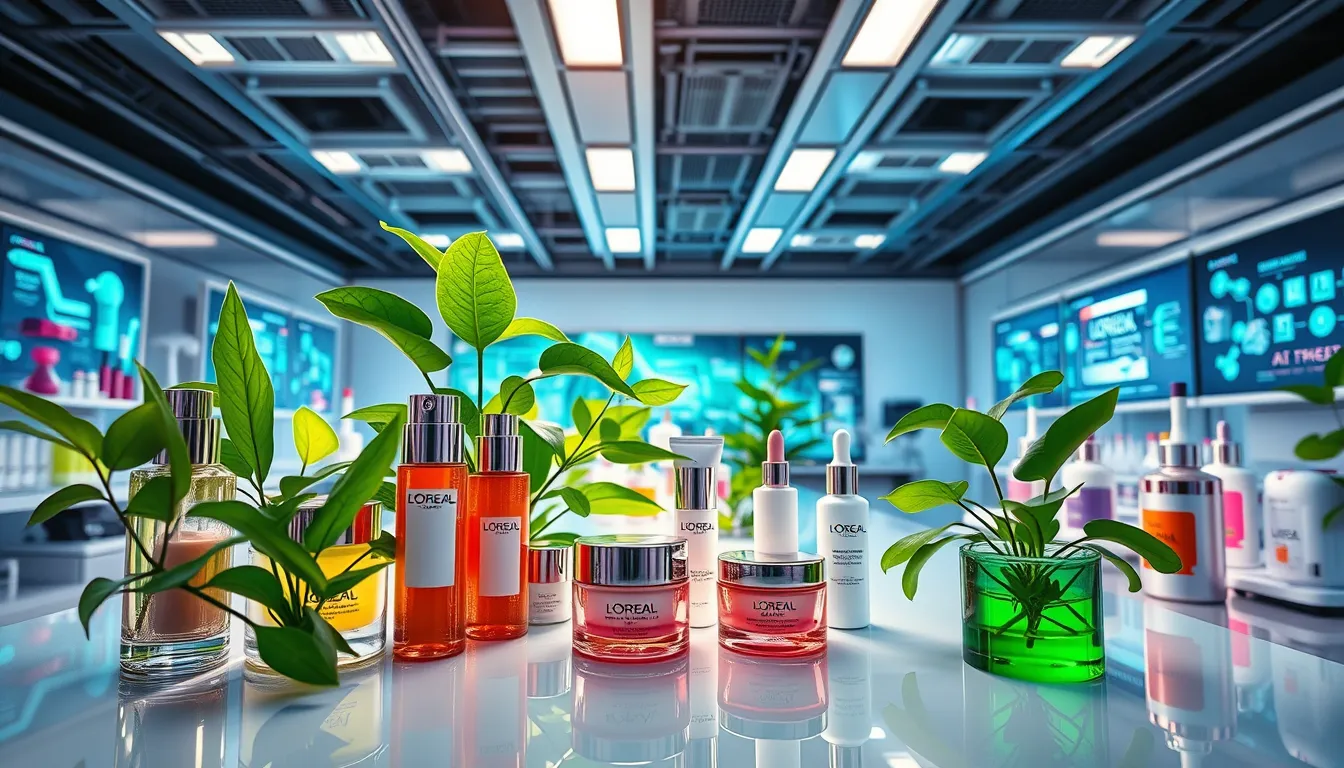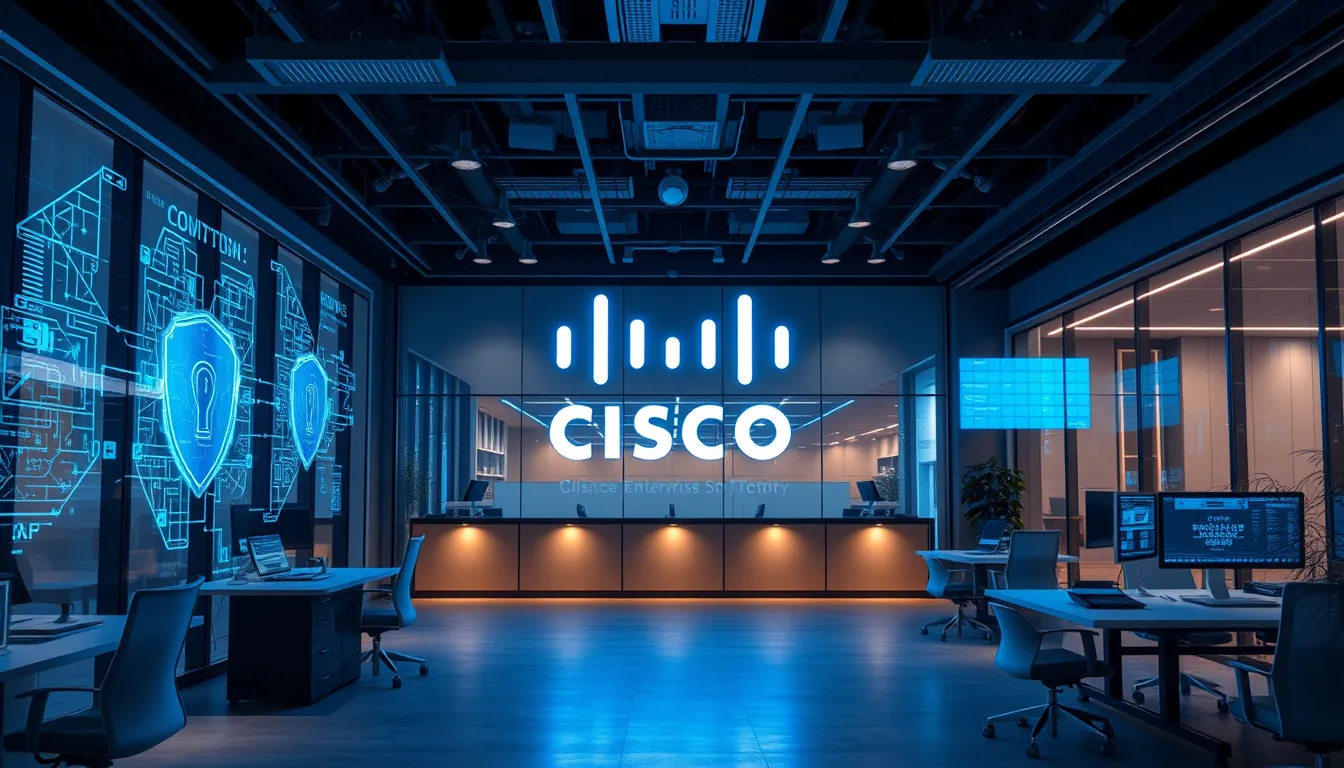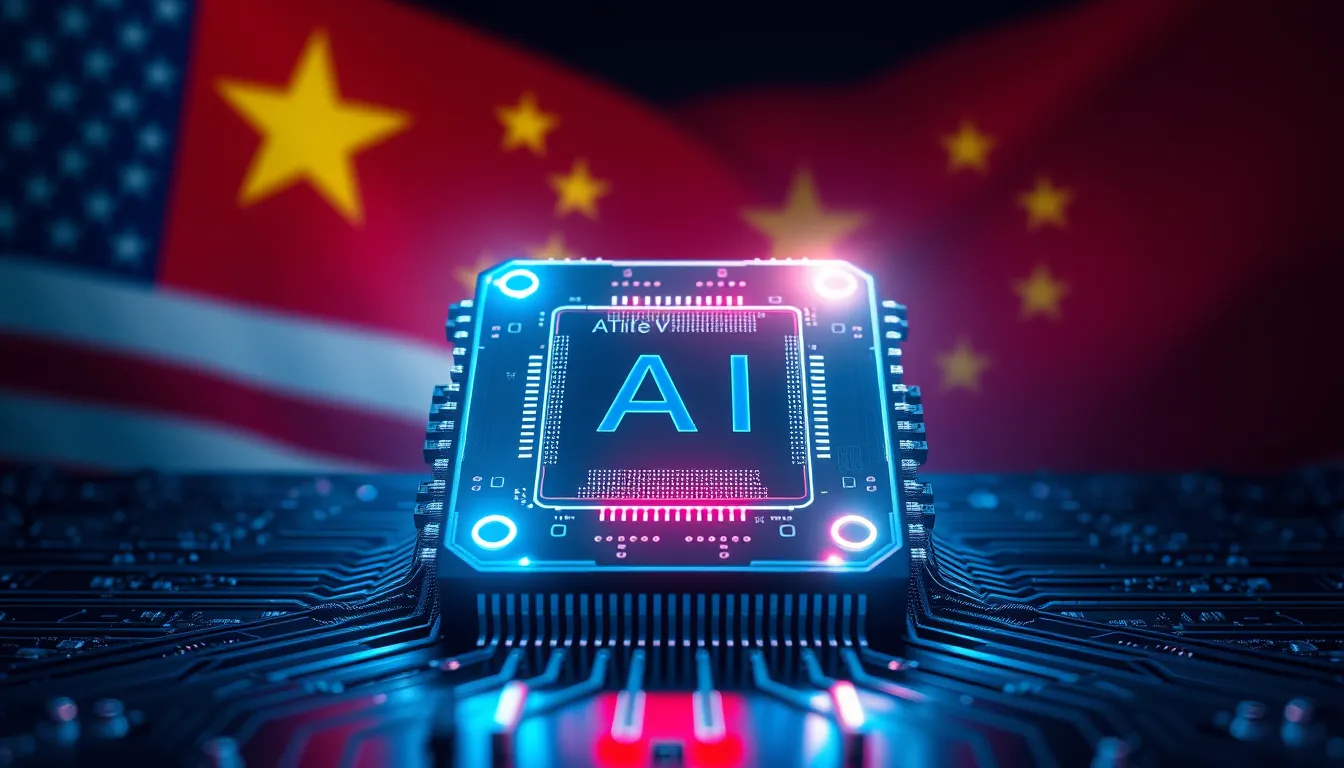Now Reading: L’Oréal AI Collaboration: Boosting Sustainable Cosmetics
-
01
L’Oréal AI Collaboration: Boosting Sustainable Cosmetics
L’Oréal AI Collaboration: Boosting Sustainable Cosmetics

L’Oréal AI Collaboration: Boosting Sustainable Cosmetics
L’Oréal, a global leader in beauty and personal care, has embarked on an innovative journey by partnering with IBM to reshape the future of cosmetic science. This transformative collaboration leverages cutting-edge generative AI technology to drive sustainable innovation and foster the creation of eco-friendly formulations. As the beauty industry evolves, the convergence of advanced artificial intelligence and cosmetic expertise marks a revolutionary step forward in personalized beauty and environmental stewardship.
Pioneering the Future of Cosmetic Science
This groundbreaking initiative unites L’Oréal’s decades-long expertise in cosmetic science with IBM’s prowess in artificial intelligence. By combining these realms, the collaboration sets new industry standards in research and development, ensuring that cosmetic products not only excel in performance but also contribute to a sustainable future. The partnership is built on several key pillars:
- Harnessing AI for the development of personalized beauty products
- Innovating eco-friendly formulations through the use of renewable raw materials
- Reducing production waste in the formulation process via intelligent design
At its core, this initiative addresses the dual challenges of consumer personalization and environmental responsibility. On one hand, it taps into the power of AI to analyze complex data sets and predict skin compatibility, while on the other, it prioritizes the use of renewable resources and sustainable manufacturing processes. This balanced approach ensures that the innovative cosmetic formulations meet both individual customer needs and global environmental demands.
The Role of Generative AI in Sustainable Innovation
Generative AI is a groundbreaking technology that has quickly become a driving force in various industries, and its application in cosmetics is no exception. By simulating countless interactions between ingredients at a molecular level, generative AI enables researchers to explore vast possibilities in formulation design. Here’s how this technology is making a significant impact:
- Enhanced Formula Precision: Generative AI algorithms are capable of analyzing and optimizing multiple variables simultaneously. This allows the design of cosmetic formulations with unprecedented precision. By fine-tuning ingredient combinations, AI can produce formulas that maximize efficacy while minimizing waste. For example, even minor adjustments in ingredient ratios can lead to improved performance and a reduction in unnecessary byproducts.
- Customization and Safety: One of the primary benefits of AI integration is its capacity to predict individual skin responses. AI models process extensive datasets, including individual skin types, environmental factors, and historical user feedback, to forecast how a particular formulation might perform. This predictive capability ensures that the end products are not only effective but also safe, catering to the unique needs of each consumer.
- Eco-friendly Innovations: Sustainability is at the heart of this collaboration. Generative AI facilitates the simulation of renewable raw material interactions, leading to the discovery of formulations that are both innovative and environmentally benign. By identifying optimal combinations of bio-based materials, L’Oréal can produce cosmetics that meet high standards of performance while minimizing ecological impact.
In practice, these AI-driven techniques transcend traditional formulation processes. Instead of relying solely on trial and error in the lab, researchers now have the capacity to simulate thousands of potential formulations on a computer model before ever handling physical materials. This not only accelerates the research cycle but also ensures that every new product is optimized for both performance and sustainability.
Integrating Advanced Analytics into Cosmetic Research
Beyond the immediate benefits of product innovation, the L’Oréal and IBM collaboration represents a paradigm shift in how cosmetic research is approached. By leveraging advanced data analytics, the initiative enables real-time adjustments during the formulation process. This integration of AI allows scientists to sift through vast amounts of experimental data and rapidly identify trends that may indicate a successful formulation pathway.
The application of advanced analytics in cosmetic science is multifaceted. In the initial research phase, AI-driven predictive models examine historical data and emerging industry trends, forecasting potential shifts in consumer preferences and regulatory standards. As the development process progresses, these models continuously adapt, ensuring that every experimental iteration is guided by the most current and comprehensive dataset available. This harmonious blend of technology and human expertise is propelling the industry toward new heights of innovation and precision.
Enhancing Environmental Sustainability
Sustainability is no longer a secondary consideration in product development; it is a core principle that drives decision-making at every level. In the current collaboration, every stage of cosmetic formulation is scrutinized for its environmental impact. The following elements play a crucial role in upholding this commitment:
- Renewable Raw Materials: The use of bio-based and renewable ingredients reduces reliance on non-sustainable resources. AI plays an instrumental role in identifying suitable alternatives that meet both safety and performance criteria.
- Waste Reduction: Traditional cosmetic formulation often involves significant amounts of waste during product development. With AI optimization, the number of experimental iterations is reduced, thereby decreasing the overall waste generated in the process.
- Energy Efficiency: Advanced simulation techniques minimize the need for extensive physical testing, which in turn lowers the energy consumption typically associated with laboratory experiments.
A detailed environmental impact analysis is integrated into the research framework. This analysis continuously assesses the ecological footprint of every new formulation, ensuring that sustainable practices are maintained throughout the product life cycle. The continuous loop of feedback between AI-driven simulations and environmental assessments creates a dynamic, responsive development process that adapts to new sustainability challenges as they arise.
Empowering Personalization through AI
The modern consumer demands personalized experiences, and the beauty sector is no exception. Personalization in cosmetics isn’t just about color matching or skin type compatibility—it’s a holistic approach that encompasses the entire user experience. Through the careful integration of AI, this collaboration is pushing the boundaries of what personalized beauty can look like.
Imagine a scenario where a customer’s online profile, complete with personal skincare history and environmental factors unique to their region, directly informs the formulation of a bespoke cosmetic product. Generative AI analyzes this data and recommends a formulation that optimizes ingredients for that individual’s needs. This level of customization ensures that the resulting product is not only tailored to individual preferences but also optimized for safety and effectiveness.
- Increased Consumer Trust: When a product is designed specifically for a consumer’s skin type, the likelihood of adverse reactions is reduced, fostering greater trust in the brand.
- Continuous Improvement: AI systems learn from customer feedback over time, leading to iterative improvements in formulations. The more data they collect, the better they become at predicting and meeting consumer needs.
- Broader Market Appeal: By offering highly personalized solutions, L’Oréal is better positioned to cater to diverse consumer demographics, ultimately enhancing its market presence and growth potential.
Embracing a New Era in Cosmetic Innovation
The L’Oréal AI collaboration signifies more than just a technological upgrade; it heralds the dawn of a new era in cosmetic innovation. As the beauty industry grapples with the evolving demands of both consumers and the environment, the integration of AI offers novel solutions to longstanding challenges. This partnership not only streamlines the research and development process but also reinforces L’Oréal’s commitment to sustainable and personalized beauty practices.
By reducing the environmental footprint of cosmetic production while simultaneously enhancing product performance, this initiative serves as a model for future ventures in other industries. The successful integration of AI in product formulation demonstrates that technology and sustainability can go hand in hand. Furthermore, it establishes a framework for continuous innovation where ongoing advances in artificial intelligence can be seamlessly integrated into traditional industries.
Collaborative Innovation: A Blueprint for the Future
Considering the far-reaching implications of this initiative, both L’Oréal and IBM view the collaboration as a blueprint for future industry practices. The methodologies and insights gained through this partnership are expected to extend beyond cosmetics, influencing other sectors where sustainability and personalization are critical. Key elements that define this collaborative blueprint include:
- Data-Driven Decision Making: The use of advanced analytics ensures that every decision, from ingredient selection to final product testing, is backed by concrete data and predictive modeling.
- Adaptive Research Frameworks: The iterative nature of AI-driven research allows for nimble adaptation to changing market and environmental conditions. This flexibility is essential in an era where consumer trends and sustainability standards are in constant flux.
- Emphasis on Sustainability: With environmental concerns taking center stage globally, businesses across industries are under pressure to innovate without compromising ecological standards. The L’Oréal AI collaboration demonstrates how companies can achieve these dual objectives by integrating sustainable practices into the heart of their innovation strategies.
Moreover, collaboration between diverse fields such as cosmetic chemistry and artificial intelligence opens up numerous possibilities for future research. Interdisciplinary ventures like this one encourage cross-sector knowledge transfer, leading to breakthroughs that single-industry approaches might not achieve. With the collaborative framework in place, both companies are well-positioned to set trends that could redefine product innovation on a global scale.
Looking Ahead: The Future of AI in Cosmetics
The future of cosmetics, empowered by AI, is brimming with possibilities. As generative AI technology continues to evolve, its applications in cosmetic research are expected to expand even further. Future developments may include:
- Real-Time Product Customization: Imagine a beauty counter where AI instantly analyzes a customer’s skin parameters and concocts a custom formulation on the spot. Such advancements could revolutionize in-store experiences, merging digital analysis with physical product creation.
- Enhanced Supply Chain Integration: AI can also streamline supply chain operations by predicting demand patterns and optimizing inventory management for renewable raw materials. This would not only reduce excess inventory but also ensure that production is aligned with market trends and environmental benchmarks.
- Advanced Sensory Analysis: As sensory science evolves, AI systems may soon be capable of simulating not just the chemical interactions in formulations but also predicting sensory outcomes such as texture, scent, and application experience. This could lead to products that not only perform well but also provide a superior sensory experience to the consumer.
Ultimately, the convergence of AI and cosmetic science represents a forward-thinking approach to product development—one that is both sustainable and deeply personalized. As L’Oréal continues to harness the power of generative AI, the entire cosmetic industry stands to benefit from innovations that are both scientifically robust and environmentally responsible.
Conclusion
In summary, the L’Oréal AI collaboration with IBM marks a watershed moment in the fusion of technology and beauty. By integrating advanced generative AI techniques with years of cosmetic expertise, L’Oréal is setting a new standard for sustainability, efficiency, and personalization in cosmetic product development. The initiative not only enhances the precision and safety of formulations but also significantly reduces environmental impact through the smarter use of resources and waste reduction strategies.
This pioneering project is a testament to the potential inherent in cross-disciplinary partnerships. As the beauty industry continues to evolve in response to changing consumer demands and growing environmental concerns, the insights and innovations emerging from this collaboration will likely lead the way towards a more sustainable and personalized future. With every breakthrough, L’Oréal reaffirms its commitment to not only meeting the needs of today’s consumers but also forging a path for a greener, more innovative tomorrow.
For those interested in the evolving landscape of cosmetic science and sustainable innovations, this initiative offers a compelling glimpse into the future. By melding the power of AI with the timeless pursuit of beauty and wellness, L’Oréal is paving the way for a new era where technology and sustainability coexist harmoniously. Stay tuned for further updates and industry insights as this exciting journey continues to unfold.

























